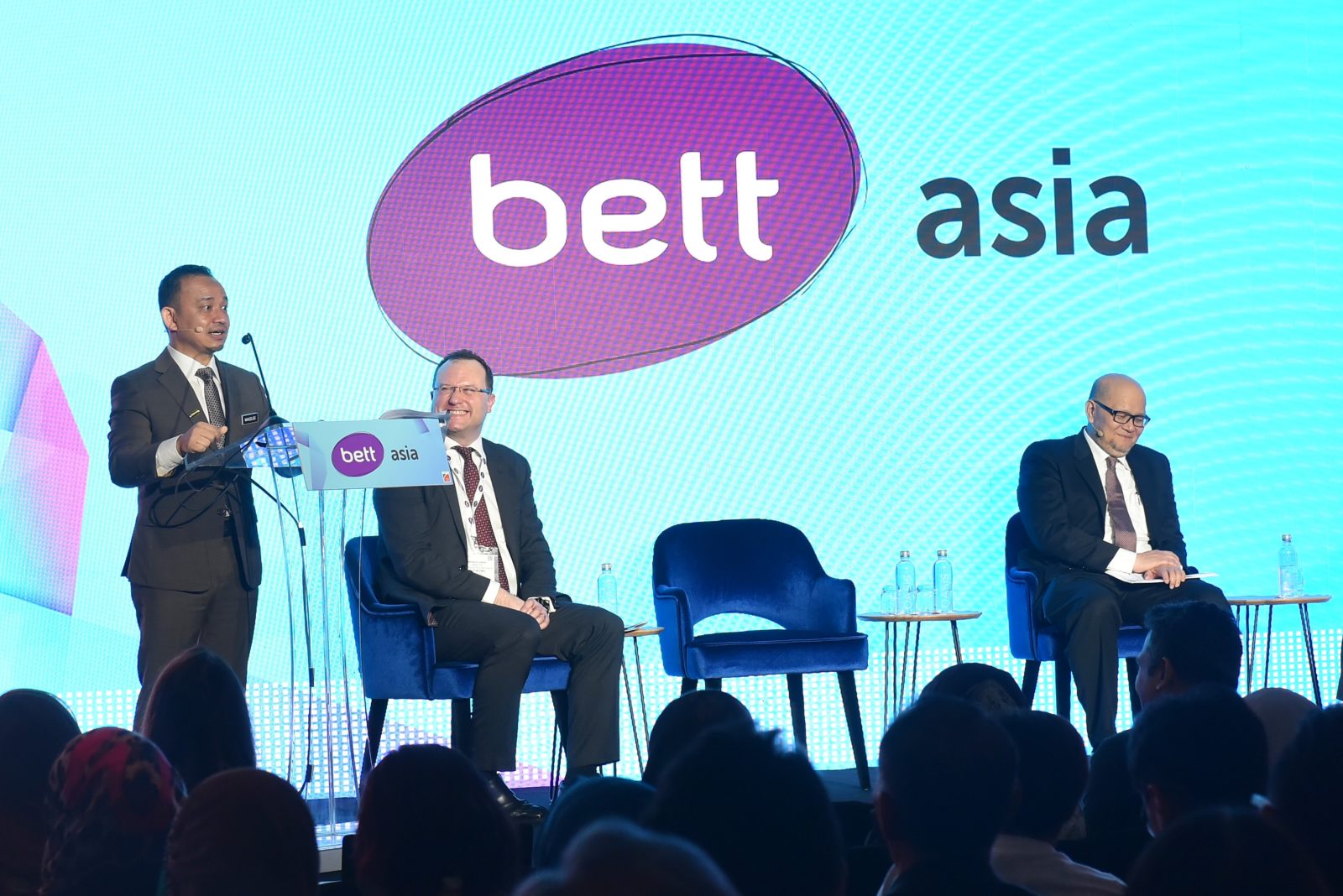
Technology in education: Transforming the whole system … with a human focus
New learnings from Bett Asia 2019
A shipment of brand-new devices arrives at a school. But weeks later, instead of being used in class, they remain carefully stashed away in a storage closet, still in the boxes and bubble wrap they came in.
Meanwhile, another school takes delivery of a 3-D printer it never asked for – and its computer science teachers are at a loss. They have no idea how to use it as a learning tool.

Many countries around the world and across Asia Pacific have been pushing to get technology into our schools for years so that the students of today will become the digital savvy workers of tomorrow. But while their intentions are good, their actions all too often have produced little in the way of outcomes.
As Director for Education at Microsoft Asia Pacific, Don Carlson is shining a light on an uncomfortable conundrum at the heart of the region’s quest for digital transformation in education. “Countries that in that past have invested heavily in technology may not have seen any improvements. Why?”
Much of the answer lies in a simple truth: merely inserting technology into schools “for technology’s sake” does not work.
Countries that in that past have invested heavily in technology may not have seen any improvements. Why?
“The reason technology projects have failed is that we are not focusing on the core priorities of teachers and school leaders … to make sure our students have an environment that allows them to grow and allow them to learn,” he said in a keynote address at Bett Asia, the region’s top technology-in-education conference, held recently in Kuala Lumpur.
Often when it comes to bringing technology into our classrooms, there is “a push, but no plan.” Even when strategies are formulated, many are never put into action or are poorly executed. Then, when things don’t work out, teachers and schools are cast as being slow, resistant to change, and unwilling to adapt. Not only is that unfair, it’s also wrong.
Carlson says digital transformation in education will only succeed when there are sweeping changes across a country’s entire education system. With that in mind, he also points to a two-word solution usually associated with boardrooms rather than classrooms: change management.
Enterprises across the region have used change management to deliver sweeping digital transformations across their businesses, making them more agile and successful. Similarly, change management – with a human-focus that centers on students, educators, and school leaders – can transform an education system so it can meet the growing digital skills demands of the fourth industrial revolution.
If adopted well, new technologies can help bring out the best in students. For instance, an artificial intelligence (AI) system could monitor the progress and emotional state of individual students by, say, analyzing what and how they write about in their coursework. Technology could deliver “personalized learning” so students can move ahead at their own pace with the role of a teacher evolving more into one of a coach.

To get there, Aidan McCarthy, Principal for K12 Digital Transformation and Strategy for Microsoft Asia Pacific, says educational structures need to adopt greater agility. “It not just about schools, it is also (about) the system. A school system is made up of great schools with great teachers, students, and parents. But all of those need to be able to work so well together.”
Such a holistic leap requires educators and policymakers to adopt a collective mindset change, says Anthony Salcito, Vice President of Worldwide Education at Microsoft. “It is going to take a wide range of thinking to drive the change. It cannot be done with technology alone,” he told Bett Asia participants via a Microsoft Teams video link from the United States.
He called on educators to be excited about the journey ahead. And, students should feel confident about their potential to change the world and solve problems. They should walk into school every day expecting more from their future. “If you can make that mindset shift, then success follows,” he said.
Maszlee Malik, Minister for Education in Malaysia, which hosted Bett Asia, welcomed the prospect of digital transformation in schools, but not at the expense of values-based curricula. “Values like love, happiness, and mutual respect should be at the core of education. We want to humanize education,” he said. “Our schools should be places where children learn and learn from each other; where learning is fun and meaningful.”
He outlined recent reforms in his country designed to encourage critical thinking and creativity among students. “Moving to a growth-oriented system in a country just as obsessed with rankings and achievements as any other countries, will obviously not be easy … It requires massive cultural and mindset changes – not just in our teachers, but also parents, employers, and the larger society.”
Values like love, happiness, and mutual respect should be at the core of education. We want to humanize education.

One new initiative is STEM4ALL – a partnership between his Ministry and Microsoft – that aims to transform Malaysia’s education sector by promoting STEM (science, technology, engineering and mathematics) subjects so graduates have the right skillset for jobs of the future.
“Digital skills are a passport to new opportunities for millions of citizens and a building block to attract investment, innovation and new jobs in a global economy,” the Minister said. “To be competitive in today’s digital-first world, it is imperative to be fast adopters of best-in-class technology, including artificial intelligence (AI). In fact, according to a study by Microsoft, over 67% of our business leaders also feel that technologies like AI will augment the jobs of tomorrow and will enhance workforce productivity.
“STEM4ALL aims to equip the future workforce to adapt to advancements in such technologies and increase their employability by developing these skills and navigating their learning in line with requirements of the digital age.”
Salcito said as the nature of work evolves with technology, so too must education. “We know that in this new economy, in this new fourth industrial revolution, the workplace is changing. The skills required by business and companies in your countries are going to different. They are moving away from a manufacturing-based economy to a services and digital-based economy. We will need students (to acquire) the skills and capabilities. The world will need more and more talent. Talent is going to be scarce.”
The economic future of Asia Pacific countries will depend on their ability to educate their workforces. “Your role as a (school) leader has never been more important. Your role as an educator to unleash the talent sitting in your classroom to solve new problems and create new businesses is now upon us. The role of education has never been more critical.”
New technologies – like cloud computing, big data, augmented reality, artificial intelligence and, one day, quantum computing – will generate foundational changes that will transform the world.
“These are foundational changes will require your students to fuel, to invest in, and to envision the future,” he said. “It is an amazing time to be in education.”
Top Image: Malaysian Minister of Education Maszlee Malik takes the podium at BETT Asia 2019. Image: Bett Asia.















